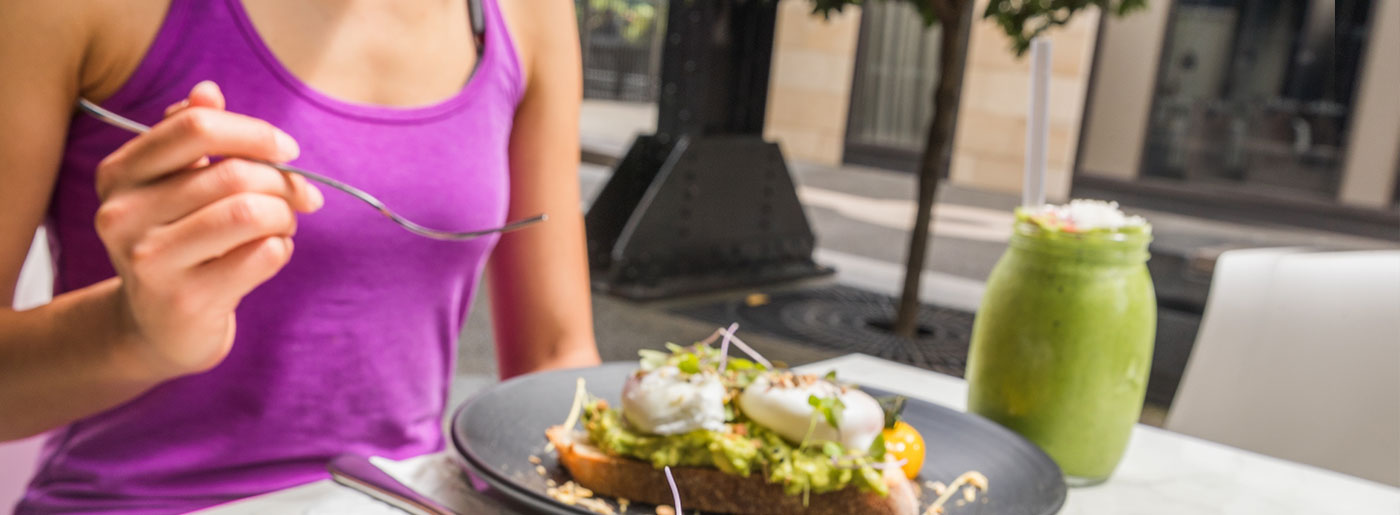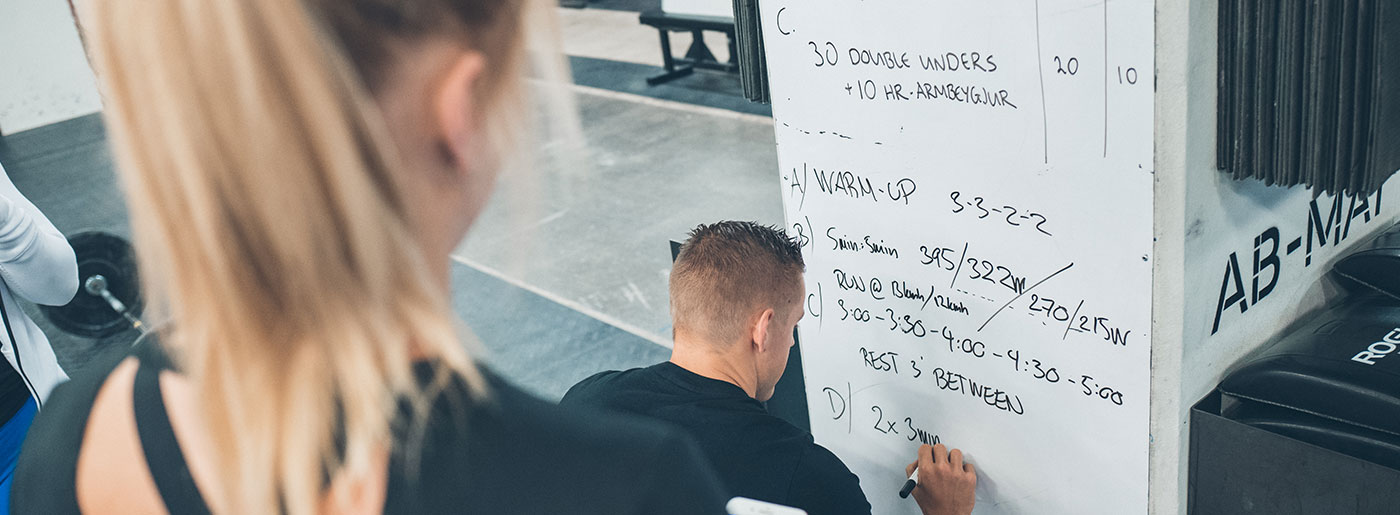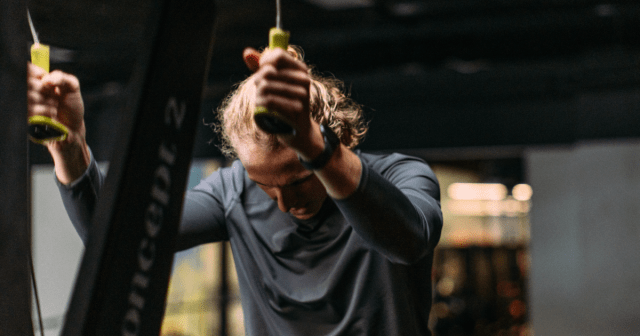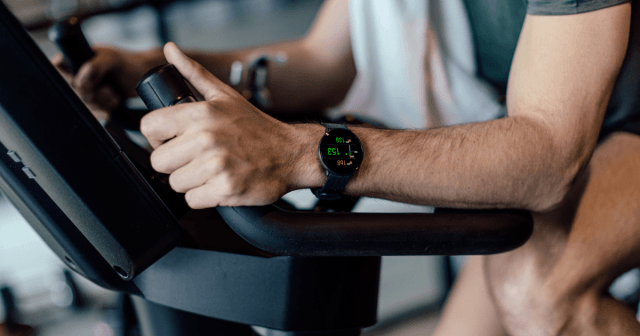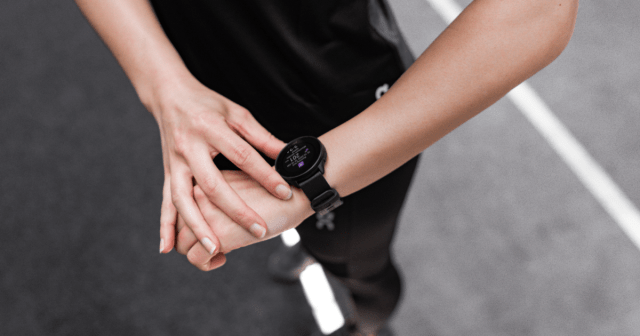Whether you’re a trained athlete or an exercise novice, consuming the necessary fuel — both pre- and post-workout — is crucial to your workouts. Nutrition provides your body with the energy needed to perform strenuous workouts while promoting recovery once the exercise is finished.
There’s an exact science to which kinds of food the body requires in order to sustain physical intensity — and it doesn’t include that sleeve of cookies you think you deserve after a long, hard workout.
To maximize your fitness results, you must be strategic and intentional about which foods you eat.
The nutrition part of your routine becomes even more nuanced depending on how you move your body. For example, cardio endurance requires a different nutritional intake than ballistic weight training does.
This is because certain forms of exercise activate processes in the body that specific nutrients can reinforce. To maximize your fitness results, you must be strategic and intentional about which foods you eat before and after each workout. Here are some ideas to jumpstart your exercise meal plan.
WHAT TO Eat before A workout
When munching on pre-workout fuel, consider the ratio of carbohydrates to proteins and how each will benefit your training. For example, carbohydrates are most beneficial for endurance workouts because this macronutrient is stored as muscle glycogen reserves. This delays the fatigue time and promotes a longer duration of performance, according to research from the Nutrients Journal.
Protein-rich foods stimulate the production of new tissues, fibers and cells.
For anabolic exercises, like weightlifting, however, the body needs a balance carbohydrate and protein intake. Because the purpose of this workout regimen is to increase muscle tone and mass, your body needs fuel for those targeted muscles, explains The Journal of the International Society of Sports Nutrition.
Consuming protein-rich foods stimulates the production of new tissues, fibers and cells that enhance muscular strength and density, which makes them especially important for weight lifting.
Here are a few suggestions for good pre-exercise foods. Find out which balance is best for your workout, and then indulge:
Carbohydrate Dense FOOD
- Raw Fruits/Vegetables
- Brown Rice Cakes
- Sprouted Grain Toast
- Whole Grain Oatmeal
Protein Dense FOODS
- Hardboiled Eggs
- Raw Seeds/Nuts
- Plain Cottage Cheese
- Plain Greek Yogurt
HOW MUCH AND WHEN TO Eat before A workout
Knowing when to eat before a workout is contingent on the type of exercise.
“For strength or resistance training, the ideal time to eat is about an hour before the workout with at least 30 to 40 grams of carbohydrate and 10 to 20 grams of protein,” advises Barbara Chin, a certified personal trainer and registered dietician.
Your fuel amounts should differ based on when you choose to eat.
For cardio, the timing is broader and can stretch from two hours ahead to just 30 minutes. But given this less structured window, Chin explains that your fuel amounts should differ based on when you choose to eat. For example, if you eat two hours before your workout, the body needs 120 to 140 grams of carbohydrate and 15 to 20 grams of protein.
However, if you eat one hour before, the body needs just 60 to 70 grams of carbohydrate and 5 to 10 grams of protein. Finally, if you’re munching just 30 minutes before moving your body, you need 30 grams of carbohydrate and minimal protein.
What and why EAT after your workout
In the post-workout recovery phase, eating as soon as the body is able following the workout provides several benefits. Physical exertion burns through electrolytes, calories and glycogen, so these depleted energy stores need to be replenished through nutrition.
After a workout:
Consume a meal portion of both carbohydrates and proteins, versus the snack portion you would ingest beforehand. You should always aim for a combination of these macronutrients because, whether you focus on endurance or resistance training, your goal is to increase muscle hypertrophy.
Balance fast-acting complex carbohydrates with cell-rebuilding proteins to repair the microtears caused during exertion.
To make that happen, the muscles harden and strengthen with protein synthesis, suggests The Journal of the International Society of Sports Nutrition. So, when you balance fast-acting complex carbohydrates with cell-rebuilding proteins, you’re able to repair the microtears caused during exertion. This accelerates recovery and optimizes the results you see.
a few post-workout meal ideas
- Leafy Green Smoothie: blend kale or spinach (carbs) with milk and whey (protein)
- Peanut Butter & Fruit: spread natural PB (protein) on apple or banana slices (carbs)
- Hummus & Vegetables: dip raw carrots (carbs) in organic hummus (protein)
- Quinoa & Sweet Potato: scoop mashed sweet potato (carbs) over quinoa (protein)
- Egg & Avocado Toast: arrange sliced avocado (carbs/protein/omega-3) on sprouted grain bread (carbs) and top with poached egg (protein)
Don’t forget to hydrate before, during and after exercise.
Don’t forget that, in addition to choosing nutritious fuel, it’s also important to hydrate before, during and after exercise as well. A baseline for water consumption is to drink 2 to 3 cups two hours before a workout, then another cup between five and 10 minutes before you start moving, according to the University of Colorado Hospital.
Eat right for BETTER FITNESS results
Use these tips and suggestions to give your body what it needs after a workout. When you get your pre- and post-workout meals set up just right, you give your muscles what they need to grow so you can see the results from all your hard work.
If you liked this post, don’t forget to share so that others can find it, too.
Or give it a thumbs up!
I like this article
Please note that the information provided in the Polar Blog articles cannot replace individual advice from health professionals. Please consult your physician before starting a new fitness program.
